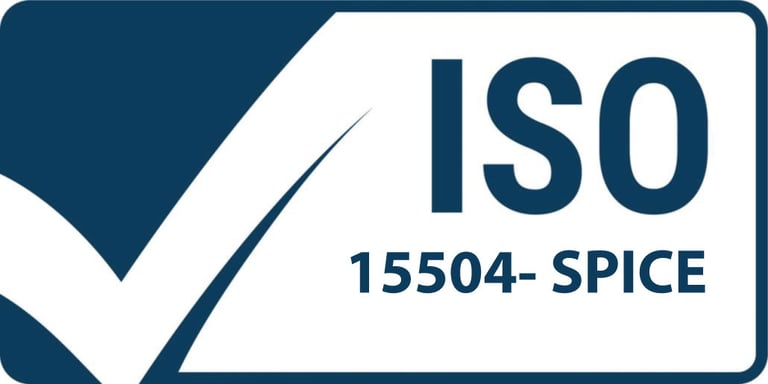
ISO 15504
ISO/IEC 15504: Information technology — Process assessment (also known as SPICE)
ISO/IEC 15504 is an international standard for software process assessment and improvement. It is also known as SPICE (Software Process Improvement and Capability Determination). This standard was developed to measure, evaluate, and ensure the continual improvement of the effectiveness and capability of software development processes.
ISO/IEC 15504 enables organizations to analyze their software processes, identify deficiencies, and improve process performance.
Objectives of ISO/IEC 15504
Assess Process Capability: To determine the maturity and capability level of software development processes.
Continual Improvement: To improve software processes, thereby increasing quality and ensuring efficiency.
Risk Reduction: To minimize project failure risks through standardized processes.
Benchmarking and Certification: To demonstrate that processes are compliant with international standards.
Enhance Team Performance: To support software development teams with better managed and optimized processes.
Structure of ISO/IEC 15504
ISO/IEC 15504 consists of two main components:
Process Reference Model (PRM):
A model where processes are defined and classified.
In this model, processes are generally categorized as follows:
Organizational processes
Management processes
Engineering processes
Process Assessment Model (PAM):
A model used to measure and analyze the capability of processes.
The capability levels of processes are assessed using a specific scale.
Capability Levels
ISO/IEC 15504 uses a 6-level scale to determine process capability:
Level 0: Incomplete Process
The process is not implemented or fails to achieve its purpose.
Level 1: Performed Process
The process is implemented, but there is no systematic approach.
Level 2: Managed Process
Processes are planned, monitored, and controlled.
Level 3: Established Process
Processes are defined and documented according to standards.
Level 4: Predictable Process
Process performance is measured and controlled.
Level 5: Optimizing Process
Processes are continually improved and optimized.
I removed all the unnessecary paranthesis.


Benefits of ISO/IEC 15504
Quality Improvement: Systematic improvement of software development processes leads to higher-quality products.
Risk Management: Assessment of processes allows for early identification of potential risks.
Competitive Advantage: Organizations offering services with standardized processes provide more reliable service to customers.
Cost Savings: Project costs can be reduced through more efficient processes.
International Compliance: Since the standard is globally recognized, it establishes a foundation for international collaboration.
Who is ISO/IEC 15504 Suitable For?
Software development companies.
Organizations seeking to optimize their software processes.
Quality assurance and process improvement teams.
Companies developing software in public and private sector projects.
Contact Us to Meet Your ISO Certification Needs and Increase Your Efficiency.
We offer affordable and effective solutions tailored to your needs.
The information presented on this website does not constitute legal advice and is intended for informational purposes only. KompassEurope.com.tr assumes no responsibility for any errors or omissions in the information contained on this website. Any decisions made or actions taken by the reader based on this information are solely at the reader's own risk, and KompassEurope.com.tr shall not be held liable for any legal consequences arising from such decisions or actions. Readers are strongly advised to seek professional legal counsel regarding their specific circumstances and concerns.
© 2025 Kompass Europe. All rights reserved. The contents of this website belong to Kompass Europe and are protected by copyright laws. Copying, publishing, distributing or any commercial use of the information on the website is possible only with written permission. By using this site, you agree to our Terms of Use and Privacy Policy.
